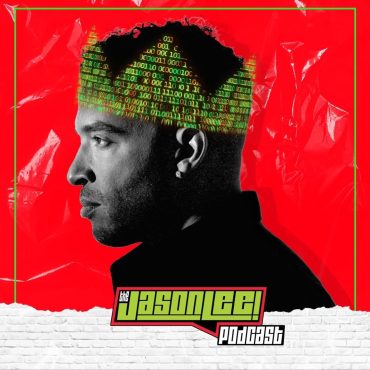
European and Asian Interest in the Slave Trade
Our Scripture verse for today is Jeremiah 13:23 which reads: “Can the Ethiopian change his skin, or the leopard his spots? then may ye also do good, that are accustomed […]
 play_arrow
play_arrow
 play_arrow
play_arrow
 play_arrow
play_arrow
 play_arrow
play_arrow
 play_arrow
play_arrow
The World Needs You Now – A Life Changing Invitation podcast
 play_arrow
play_arrow
THE FRUIT LOOPS TASTE CHALLENGE EXPOSED! -You Should Know Podcast- podcast
 play_arrow
play_arrow
Make life harder (and better): Learn another language. podcast
 play_arrow
play_arrow
Stop Announcing, Start Becoming podcast
 play_arrow
play_arrow
What Makes Men Feel Insecure podcast
 play_arrow
play_arrow

Our Scripture verse for today is Galatians 3:28 which reads: “There is neither Jew nor Greek, there is neither bond nor free, there is neither male nor female: for ye are all one in Christ Jesus.”
Our BA and BC quote for today is from preacher and civil rights leader Martin Luther King Jr. He said, “Faith is taking the first step even when you don’t see the whole staircase.”
In this podcast, we are using as our texts: From Slavery to Freedom, by John Hope Franklin, The Negro Church in America/The Black Church Since Frazier by E. Franklin Frazier and C. Eric Lincoln, and The Black Church In The U.S. by William A. Banks.
Our topic for today is “The First West African States: Ghana” from John Hope Franklin’s book, From Slavery to Freedom. He writes:
The first West African state of which there is any record is Ghana, which lay about 500 miles northwest of its modern namesake. It was also known by its capital, Kumbi Saleh. Although its accurately recorded history does not antedate the seventh century, there is evidence that Ghana’s political and cultural history extends back perhaps into the very early Christian era. The earliest observations of Ghana were made when it was a confederacy of settlements extending along the grasslands of the Senegal and the upper Niger. Its boundaries were not well defined, and doubtless they changed with the fortunes of the kingdom. Most of the public offices were hereditary, and the tendency was for the stratified social order to become solidified.
The people of Ghana enjoyed some prosperity as farmers until continuous droughts extended the desert to their lands. As long as they were able to carry on their farming, gardens and date groves dotted the countryside, and there was an abundance of sheep and cattle in the outlying areas. They were also a trading people, and their chief town, Kumbi Welt, was an important commercial center during the Middle Ages. By the beginning of the tenth century the Muslim influence from the East was present. Kuenhi Saleh had a native and an Arab section, and the people were gradually adopting the religion of Islam. The prosperity that came in the wake of Arabian infiltration increased the power of Ghana, and its influence was extended in all directions. In the eleventh century, when the king had become a Muslim, Ghana could boast of a large army and a lucrative trade across the desert. From the Muslim countries came wheat. fruit, and sugar. From across the desert came caravans laden with textiles, brass, pearls, and salt. Ghana exchanged ivory, slaves, and gold for these commodities. The king, recognizing the value of this commercial intercourse, imposed a tax on imports and exports and appointed a collector to look after his interests.
Under the rulers of the Sisse dynasty, Ghana reached the height of its power. Tribes as far north as Tichit in present Mauritania paid tribute to the king of Ghana, while in the south its influence extended to the gold mines of the Faleme and of the Bambuk. It was the yield from these mines that supplied the coffers of the Sisse with the gold used in trade with Moroccan caravans. In faraway Cairo and Baghdad, Ghana was a subject of discussion among commercial and religious groups.
The reign of Tenkamenin in the eleventh century is an appropriate point at which to observe the kingdom of Ghana. Beginning in 1062, Tenkamenin reigned over a vast empire which, through the taxes and tributes collected by provincial rulers, made him immensely wealthy. Arab writers say that he lived in a fortified castle made beautiful by sculpture, pictures, and windows decorated by royal artists. The grounds also contained temples in which native gods were worshipped, a prison in which political enemies were incarcerated, and the tombs of preceding kings. The king, highly esteemed by his subjects, held court in magnificent splendor. During Tenkamenin’s reign the people of Ghana adhered to a religion based on the belief that every earthly object contained good or evil spirits that had to be satisfied if the people were to prosper. The king, naturally. was at the head of the religion. In 1076, however, a band of Muslims invaded Ghana and brought the area under the influence of their religion and trade. They seized the capital and established the religion of Islam. The strife that ensued was enough to undermine the kingdom of Ghana. By the end of the eleventh century, Ghana entered a period of economic decline brought on by a series of droughts. Under such trying circumstances Ghana fell easy prey to the waves of conquerors who swept in to destroy the kingdom during the twelfth and thirteenth centuries.

Our Scripture verse for today is Jeremiah 13:23 which reads: “Can the Ethiopian change his skin, or the leopard his spots? then may ye also do good, that are accustomed […]







Copyright Blackpodcasting 2025